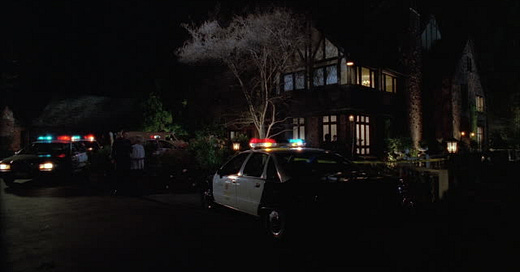What to Do When Law Enforcement and Emergency Services Arrive in Your Neighborhood
Learn vital steps for handling emergencies in your neighborhood. Dos and don'ts included.
What to Do When Law Enforcement and Emergency Services Arrive in Your Neighborhood
If you know someone who moved to the USA and could use some guidance, please share this with them.
In many cultures, including our own, the sight of a police car or an ambulance in the neighborhood prompts an immediate response from residents. Back home, it's common for neighbors to rush out to offer assistance or gather to inquire about the situation. However, transitioning to life in a new country, such as the USA, brings about a different approach. Here, the protocol during emergencies is distinct, emphasizing the importance of allowing trained professionals to manage the situation. As immigrants, adapting to this shift in cultural norms can be challenging yet essential for ensuring the safety and well-being of ourselves and our community.
Emergencies can strike at any time, leaving us feeling vulnerable and uncertain. Whether it's a medical crisis, a fire, or a law enforcement operation unfolding in our neighborhood, knowing how to respond appropriately is essential for our safety and the well-being of those around us. For immigrants adjusting to life in a new country, understanding the protocols and best practices during emergencies is particularly crucial, as it may differ from what they were accustomed to in their home countries.
Imagine hearing sirens and flashing lights outside your window. Peering through the curtains, you see multiple police cars, an ambulance, and a fire truck parked across the street.
Concerned neighbors gather on the sidewalk, speculating about what could be happening. As an immigrant, you may feel a sense of responsibility to help but are unsure of the appropriate course of action. In such moments, it's essential to remain calm and follow established guidelines to ensure everyone's safety.
Discover the following essential Dos and Don'ts to navigate these situations effectively, prioritizing safety and collaboration with law enforcement and emergency personnel.
Dos:
Stay Informed: Keep track of local emergency response guidelines and contact numbers. Being informed empowers you to act responsibly during emergencies. Access local public information or contact the public information officer to understand the nature of the emergency and stay updated on developments.
Assess the Situation: Before stepping out of your home, take a moment to assess the situation from a safe distance. Avoid interfering with the work of emergency responders and follow their instructions if you are asked to evacuate or stay indoors.
Provide Information: If you witnessed the emergency or have relevant information, share it with the authorities. Accurate information can aid in a swift and effective response. However, avoid spreading rumors or speculation about the nature of the emergency.
Offer Support from a Distance: If you feel compelled to help, do so from a safe distance. You can offer words of encouragement to those affected or support emergency responders by clearing the area and following their directions.
Don'ts:
Avoid Crowding: While it's natural to be curious, avoid crowding around the scene of the emergency. Crowds can obstruct emergency responders and compromise their ability to carry out their duties.
Don't Interfere: Refrain from interfering with the work of emergency responders unless asked to assist. Let trained professionals handle the situation to ensure the safety of everyone involved.
Limit Speculation: Avoid spreading rumors or speculating about the nature of the emergency. Misinformation can cause unnecessary panic and hinder the efforts of emergency responders.
Don't Compromise Safety: Prioritize your safety and that of your family. If the situation poses a risk to you or others, remain indoors and follow instructions from authorities.
By following these dos and don'ts, immigrants and all members of our community can contribute to a safe and efficient response during emergency situations. Let's support our community by being prepared, informed, and responsible in times of crisis.
If you know someone who moved to the USA and could use some guidance, please share this with them.
We value your feedback! Please take a moment to share your thoughts on this episode and let us know what topics you would like to read about next. Your input guides us in delivering valuable and relevant content. Feel free to leave your feedback in the comments below or email to author.settlewise@gmail.com.
Thanks for reading SettleWise! Was this email forwarded to you? That's wonderful! It shows how much they value you and believe that you would benefit from the content. Subscribe for free to receive new posts and support our work.
Disclaimer: We are not certified professionals in the fields discussed. The content provided in this article is for educational and entertainment purposes only. The opinions and suggestions shared are intended to provide general information and assist you in making informed decisions. Please note that while we may mention specific products or services, We may earn referral income from some of the links provided, but no additional cost to you. Therefore, while you can continue reading and absorbing the information, please exercise your own judgment and seek professional advice when necessary. Please gamble responsibly and with caution, as playing the lottery involves chance and there are no guaranteed outcomes.





